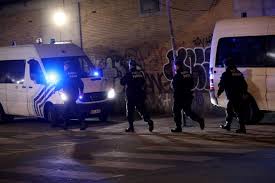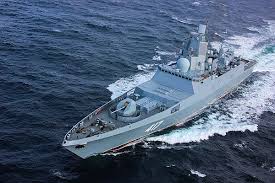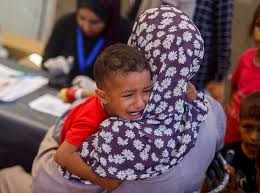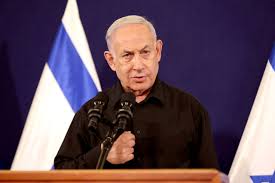DUSHANBE (TASS): The leaders of the countries of the Collective Security Treaty Organization (CSTO) at a meeting of the Collective Security Council approved a plan to equip the Collective Forces of the organization with modern weapons. This is stated in a message published following the meeting on the official website of the CSTO.
“The heads of state also approved a plan for equipping the Collective Rapid Reaction Forces [CRRF] of the CSTO with modern weapons, military and special equipment, special means. This is a very important and timely document, the implementation of which will bring our CRRF to a new quality level,” the document says.
It indicates that due to the tense situation on the Tajik-Afghan border, the plan for the operational deployment of the CSTO Collective Forces in the Central Asian region has been clarified, as well as the composition of the military contingents and special forces formations of the CSTO CRRF has been clarified.
Also, the leaders of the CSTO countries signed an Agreement on joint material, technical and medical support of the Troops (Collective Forces) of the Collective Security Treaty Organization.
The countries participating in the CSTO summit agreed to strengthen the southern borders of the association against the background of the situation in Afghanistan. In a month, they will conduct a number of large-scale military exercises in Tajikistan.
Afghanistan
The Collective Security Council, which includes the leaders of the CSTO countries, called on “all Afghan parties involved in the conflict to begin substantive negotiations on a peaceful settlement as soon as possible.” The association considers it expedient to “use the existing negotiating possibilities,” including the mechanism of the expanded “troika” (Russia, the United States, China and Pakistan) and the Moscow format.
The CSTO will accelerate the adoption of a targeted program to strengthen the Tajik-Afghan border, and in a month will hold a series of large-scale exercises in Tajikistan to practice actions in case of an aggravation of the situation.
The CSTO clarified the operational deployment plan and the composition of the Collective Rapid Reaction Forces and adopted a plan to re-equip them with modern weapons, military and special equipment.
Kazakh President Kassym-Jomart Tokayev stressed that the situation in Afghanistan “is developing towards serious destabilization, fraught with civil war.” According to him, the formation of a provisional government by the radical Taliban movement has its own pitfalls.
Foreign policy
In the final declaration of the summit, the CSTO countries reaffirmed their “unity and determination to consistently work to str-engthen international and regional security” in the co-ntext of “aggravated interstate competition, growing international tension, and narrowing the space for constructive interaction.”
Armenian Prime Minister Nikol Pashinyan called on to deepen the foreign policy coordination of the countries of the organization and interaction with other international organizations, as well as to update the “crisis response mechanisms”.
The declaration notes that the CSTO will strengthen cooperation with the UN, CIS, the Shanghai Cooperation Organization and the OSCE “in areas of mutual interest.”
In addition, the organization will have the institution of a special representative of the secretary general for peacekeeping.
Within the organization
The CSTO countries will create a mechanism for cooperation between the military police, investigators, prosecutors and courts (tribunals) in cases against persons who are part of the collective security system.
The parties agreed to pay increased attention to the cooperation of defense ent-erprises within the framework of the CSTO. Earlier, members of the organization preliminarily approved a strategy for cooperation in the military-industrial complex; specific agreed proposals are planned to be prepared by 2022.
Kyrgyz President Sadyr Japarov proposed to develop a mechanism of action in the event of an attack by one CSTO member country on another. He again drew attention to the continuing tension on the border of the republic with Tajikistan.






